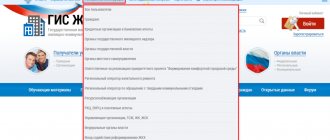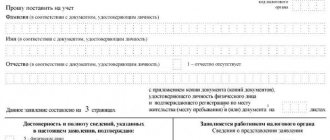Accounting in organizations serving the housing and communal services sector has some features. The nuances of accounting arise due to the diversity of income, mutual settlements, and the specifics of taxation. In the article we will tell you about accounting in housing and communal services, we will give examples of calculations with transactions.
Accounting in housing and communal services enterprises is not regulated by any specific regulations. Its conduct is subject to generally accepted rules, methods and laws relating to other organizations. In accordance with accounting standards, organizations operating in the field of housing and communal services can develop their own methods of conducting it, fixing them in their accounting policies.
Accounting for settlements with suppliers and consumers
The most common option for a management company to organize settlements with suppliers and consumers of utility payments is to conclude an agreement on the paid nature of the services provided. In this case, funds received from apartment owners are classified as income of the organization, and the cost of services invoiced by suppliers is classified as expenses.
| Account correspondence | Contents of operation | |
| Debit | Credit | |
| 20 | 60 | For the amount of utilities provided by suppliers for payment |
| 19 | 60 | VAT on supplier services |
| 68 | 19 | VAT offset |
| 62 | 90/1 | Bills submitted for payment to utility service consumers |
| 90/3 | 68 | VAT calculation |
| 90/2 | 20 | Write-off of expenses |
| 50, 51 | 62 | Receipt of funds to pay utility bills |
| 60 | 51 | Transferred to the supplier for utilities |
Cost accounting in housing and communal services
The formation of costs associated with the provision of utility services is reflected in the debit of accounts 20 “Main production”, 23 “Auxiliary production”, 26 “General expenses”, etc.
Based on existing practice at enterprises in the housing and communal services sector, costs have been formed for many years according to the same scheme. In accordance with the Methodology for planning, accounting and calculating the cost of housing and communal services, the cost includes the costs of work for which housing and communal services enterprises are responsible under the contract. Thus, the object of calculation in the housing and communal services sector is a specific type of work specified in the contract. Based on this, a typical housing and communal services cost estimate includes:
— basic expenses provided for by the current legislation of the Russian Federation;
— additional costs associated with the operation of the housing stock;
— costs associated with the provision of utilities and maintenance of the local area.
When making payments for resources using the ERCC, the following accounting entries are used:
Debit 20 Credit 60 - invoices from suppliers for housing and utility services received.
Debit 19 Credit 60 - VAT reflected
Debit 26 Credit 60 - invoices received from the ERCC for services for accrual and collection of money from the population, as well as other general business expenses
Debit 19 Credit 60 - VAT reflected
Debit 76-6 Credit 90 - reflects the accrual of housing and communal services to the population according to the ERCC certificate
Debit 50, 51 Credit 76-5 - payment received from the public
Debit 76-5 Credit 51 - ERCC transferred payment to suppliers of housing and communal services (less remuneration)
Debit 90 Credit 68 VAT charged
Debit 90 Credit 20.26 - expenses written off
Debit 90 (99) Credit 99 (90) - reflects the financial result.
For late payment of housing and communal services, contracts with consumers may provide for penalties. Even if the consumer does not interact directly with housing and communal services companies, but receives overbilled invoices, for example, from the landlord, the resulting liability for violation of the terms of contracts for the provision of housing and communal services services is subject to compensation. This liability in the form of a penalty is generally reflected as a sanction for violation of the terms of a business contract as part of other expenses (clause 11 of PBU 10/99). Accordingly, the entry for penalties for housing and communal services will look like this: Debit 91 - Credit 76
An accountant in the housing and communal services sector must be fluent in a computer and be able to use programs designed for accounting in housing and communal services. The responsibilities of a full-time accountant of a housing and communal services enterprise include:
— accounting of material assets and their transfer to accountable persons;
— calculation and payroll of the organization’s employees;
— accounting of funds received into the company’s account;
— organization of accounting of settlements with resource-supplying organizations for the resources provided (heat, water, electricity);
— generation and submission of reports to fiscal and regulatory authorities;
— generation of reports for their accounting areas.
The list of responsibilities does not end there; their full list may be different and depends on the specific organization.
Settlements of the management company with the ERCC
The management company can cooperate with the unified cash settlement center (UCSC) subject to the conclusion of an agency agreement. To account for settlements with the ERCC, a separate subaccount of account 76 is used.
| Account correspondence | Contents of operation | |
| Debit | Credit | |
| 51 | 76 | Funds received from ERCC |
| 76 | 62 | Utilities paid by homeowners |
| 62 | 90/1 | Income shown |
Accounting for utility bills by owners
Property owners can pay for housing and communal services in three main ways :
- under an agreement that the housing and communal services organization concludes with resource supply enterprises. Payments in this case are calculated by the housing and communal services enterprise's own accounting department. When implementing this method, the organization uses its current accounts to accept utility payments, after which mutual settlements are carried out with resource-supplying enterprises. This payment option is by far the most popular;
— under an agreement that the enterprise entered into with a resource supplying organization and a unified settlement and cash center (hereinafter referred to as the ERCC). In this case, it is the ERCC that is responsible for the monthly accrual of the required amounts for payment, as well as sending out receipts to the owners of the premises. There are two possible situations here: residents’ payments are sent to the bank account of a banking organization, which is indicated in the agreement with the settlement center. The bank then sends the received funds to the settlement account of the housing and communal services enterprise so that it can repay the debt to organizations supplying resources; Apartment owners pay consumed resources directly to resource supply organizations, which is allowed in accordance with Part 7.1 of Article 155 of the Housing Code of the Russian Federation.
- under direct contracts that premises owners enter into with service providers. In such a situation, the owners make payments for utility services to municipal unitary enterprises and other suppliers independently, and this payment for utility services is not reflected in any way in the accounting records of the housing and communal services enterprise. For a housing and communal services company, this method is the most convenient, because it does not need to process regularly received funds. However, it has not yet received wide distribution. This is partly explained by the fact that homeowners’ associations (as well as management companies) do not have the right to refuse to enter into an agreement with a resource supply organization. This norm is also spelled out in Part 12 of Article 161 of the RF Housing Code.
Accounting for costs of managing apartment buildings
An important nuance of accounting for the property and obligations of housing and communal services organizations is the obligation to keep separate records of income and expenses by type. In accordance with this, real estate management services are accounted for separately on account 20. Since the main income of such organizations is revenue from managing an apartment building, expenses for this type of activity should be taken into account as basic, and not as general business expenses.
Account 26 should reflect expenses not directly related to the main activity.
Account 26 in the management company is used to reflect expenses for other activities.
Accounting practice
Let's move on to the practical aspects of accounting in a management company. Let's start with acquiring resources. Transactions in this group are reflected in the debit of accounts 19, 60, 20, 68 and the credit of accounts 60, 51, 19.
Accounting for transactions for the provision of housing and communal services is carried out by debiting accounts 90 (with corresponding subaccounts), 60, 62, 51 and crediting accounts 20, 62, 90, 68.
Postings to these accounts are relevant for management companies operating under a general or simplified taxation system. The maximum number of postings is made by OSNO users. Simplified people enjoy a VAT exemption. Accordingly, some postings are irrelevant for them.
Tax accounting at housing and communal services enterprises
Organizations operating in the housing and communal services system can apply both general and special taxation regimes. OSNO is the easiest to use. But it should be taken into account that the use of such a system causes a fairly high tax burden. The organization is a payer of income tax and VAT.
For most companies working in the housing and communal services sector, the simplified tax system is preferable. This option is acceptable when:
- the number of company employees does not reach 100 people;
- income in the reporting period does not exceed 60,000,000 rubles;
- the cost of fixed assets on the organization’s balance sheet did not reach 100,000,000 rubles.
By choosing the “simplified” system, the company receives an exemption from the obligation to pay income tax at a rate of 20% and VAT. These payments are replaced by the tax provided for by the simplified tax system at a rate of 15% if taxation is carried out according to the “income-expenses” system, or at a rate of 6% if income is taxed.
The simplified tax system is attractive for companies whose activities most often result in a loss. In this case, the tax rate for them will be 1% of their income.
Taxation of management companies
The management organization can choose either a general taxation system (hereinafter referred to as OSNO) or a simplified taxation system (hereinafter referred to as simplified taxation system) if the necessary conditions are met. In both cases, the tax base for the purpose of calculating the corresponding taxes is the difference between income and expenses.
When using OSNO, you must pay income tax, which is 20%, and VAT. At the same time, in accordance with Article 149 of the Tax Code of the Russian Federation, the management organization is exempt from paying VAT when providing utilities, carrying out maintenance and repair work on an apartment building with the involvement of relevant organizations.
Enterprises in the housing and communal services sector, using the taxation system in the form of the simplified tax system, do not pay VAT and income tax. Instead, they pay a separate tax due to the simplified tax system. The tax rate depends on the object of taxation and is 6% or 15%.
The right to use the simplified tax system is available to management organizations whose income does not exceed 60 million rubles, the book value of the company’s fixed assets is less than 100 million rubles, and the number of full-time employees does not exceed 100 people.
Accounting statements of housing and communal services organization
The responsibilities of a legal entity working in the housing and communal services sector include maintaining accounting records and providing reporting. This obligation applies to any company, regardless of which taxation system is applied. The reporting set for the year includes:
- balance sheet;
- Profits and Losses Report;
- Explanation of the balance sheet and income statement;
- statement of changes in equity;
- cash flow statement.
Interim reporting includes only the first two forms. If the organization belongs to a small business, the reporting also includes only the balance sheet and income statement. When applying the simplified tax system, reporting is provided in a simplified form and includes a balance sheet, a statement of financial results and a report on the intended use of funds.
In addition, housing and communal services organizations regularly provide information on the number of personnel and data on income tax 2-NDFL. If an enterprise uses OSNO, then it is necessary to submit a tax return for income tax and VAT. Organizations that use the simplified tax system submit a single tax return even if there are no income or expenses in the reporting period.
Let's help you get started!
- We will set up a turnkey program at a discounted price;
- We will promptly transfer your data to the program;
- We will offer training;
- We will provide free access to the Knowledge Base.
The cost of renting the program
is 1188 RUR/month. when paying annually, 1 user, up to 500 accounts. With a monthly payment of 1485 ₽.
+380 ₽./month.
pa every 500 personal accounts “from above”. Free during rental period:
- — Uploading data to GIS housing and communal services via templates and API;
- — Mobile application for the chairman;
- — Mobile application for housing and communal services inspector;
- — Extensive knowledge base;
- — Free updates.






